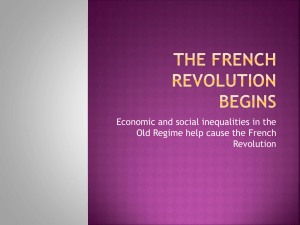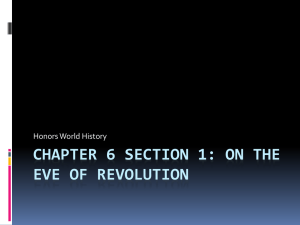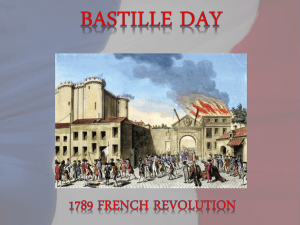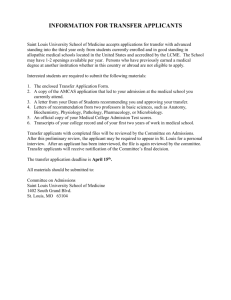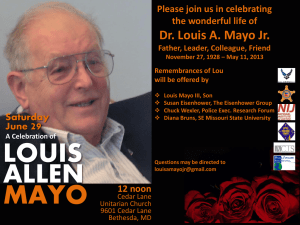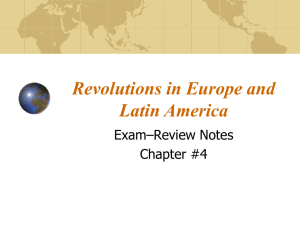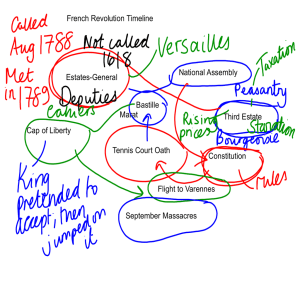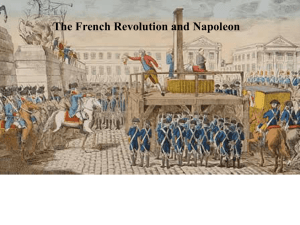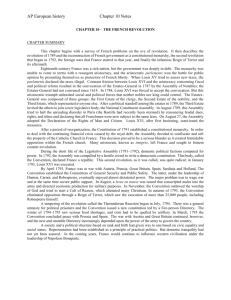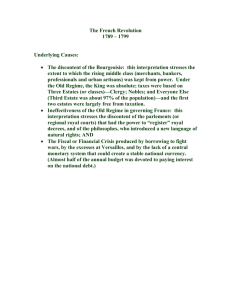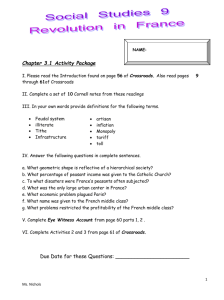The Reign of Terror
advertisement
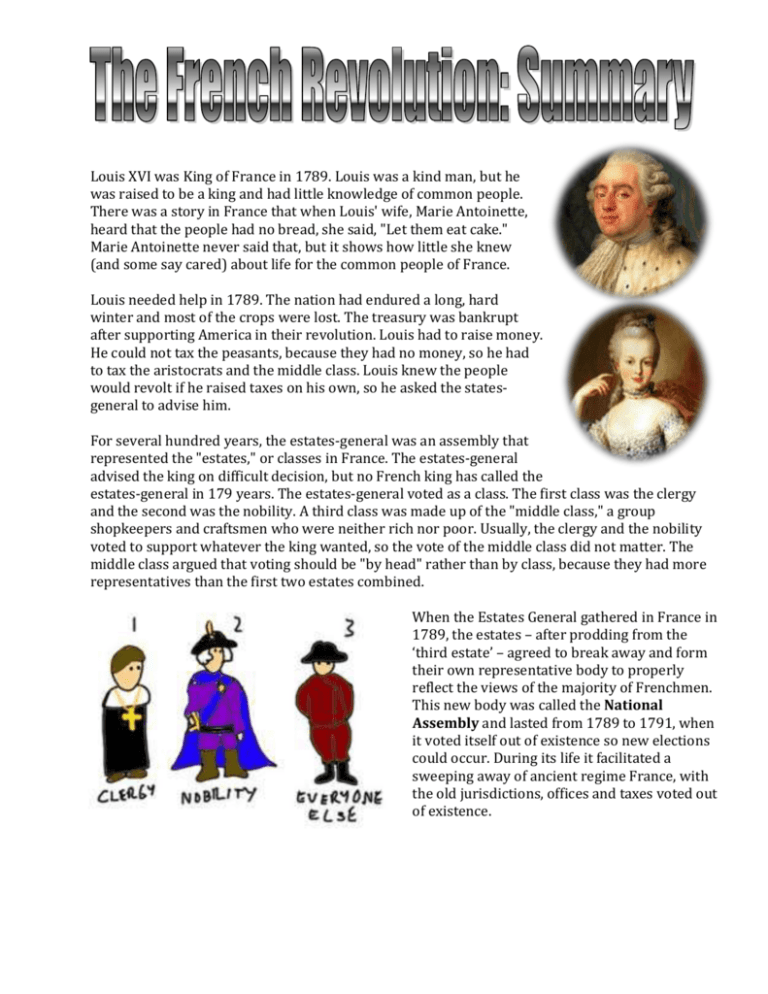
Louis XVI was King of France in 1789. Louis was a kind man, but he was raised to be a king and had little knowledge of common people. There was a story in France that when Louis' wife, Marie Antoinette, heard that the people had no bread, she said, "Let them eat cake." Marie Antoinette never said that, but it shows how little she knew (and some say cared) about life for the common people of France. Louis needed help in 1789. The nation had endured a long, hard winter and most of the crops were lost. The treasury was bankrupt after supporting America in their revolution. Louis had to raise money. He could not tax the peasants, because they had no money, so he had to tax the aristocrats and the middle class. Louis knew the people would revolt if he raised taxes on his own, so he asked the statesgeneral to advise him. For several hundred years, the estates-general was an assembly that represented the "estates," or classes in France. The estates-general advised the king on difficult decision, but no French king has called the estates-general in 179 years. The estates-general voted as a class. The first class was the clergy and the second was the nobility. A third class was made up of the "middle class," a group shopkeepers and craftsmen who were neither rich nor poor. Usually, the clergy and the nobility voted to support whatever the king wanted, so the vote of the middle class did not matter. The middle class argued that voting should be "by head" rather than by class, because they had more representatives than the first two estates combined. When the Estates General gathered in France in 1789, the estates – after prodding from the ‘third estate’ – agreed to break away and form their own representative body to properly reflect the views of the majority of Frenchmen. This new body was called the National Assembly and lasted from 1789 to 1791, when it voted itself out of existence so new elections could occur. During its life it facilitated a sweeping away of ancient regime France, with the old jurisdictions, offices and taxes voted out of existence. The people revolt and storm the Bastille King Louis has supported the middle class, but people began to think he had changed his mind and would dissolve (or end) the National Assembly. Louis' army seemed to be placed in ways that would stop the middle class. On July 14, 1789, the middle class attacked the Bastille. The Bastille was a prison where weapons were stored. The middle class now had the power to rule France and the French Revolution had begun. Louis remained King, but had little authority. The National Assembly now controlled France. Louis was moved from his palace in Versailles to Paris, where he would be safer from attack. The National Assembly made many changes. Torture and arbitrary imprisonment were abolished. Property owned by the church was seized. The highest ranks of the military were now open to people of every class. The people elected judges for short periods of time. Now, the common people of France controlled justice. The other ruling families of Europe were very unhappy with what was happening in France. What would happen if their people revolted? Monarchs in Austria and Prussia (now a part of Germany) sent soldiers to support Louis. Louis tried to escape France, but he was captured and returned to Paris. In January, 1793, Louis XVI and his wife, Marie Antoinette were beheaded for a "multitude of crimes." The Reign of Terror The Revolution had gone further than the people expected it to. Several men contended for power. Those that lost power struggles were usually beheaded. This period became known as the "Reign of Terror," as the French attempted to remake almost every part of life. The days of the week were renamed and the Christian calendar was replaced by a new calendar. Churches were closed and the clergy were persecuted, or treated cruelly. The Reign of Terror ended when the French government was taken over by a popular general who became the most powerful leader in European history since Charlemagne… Napoleon
